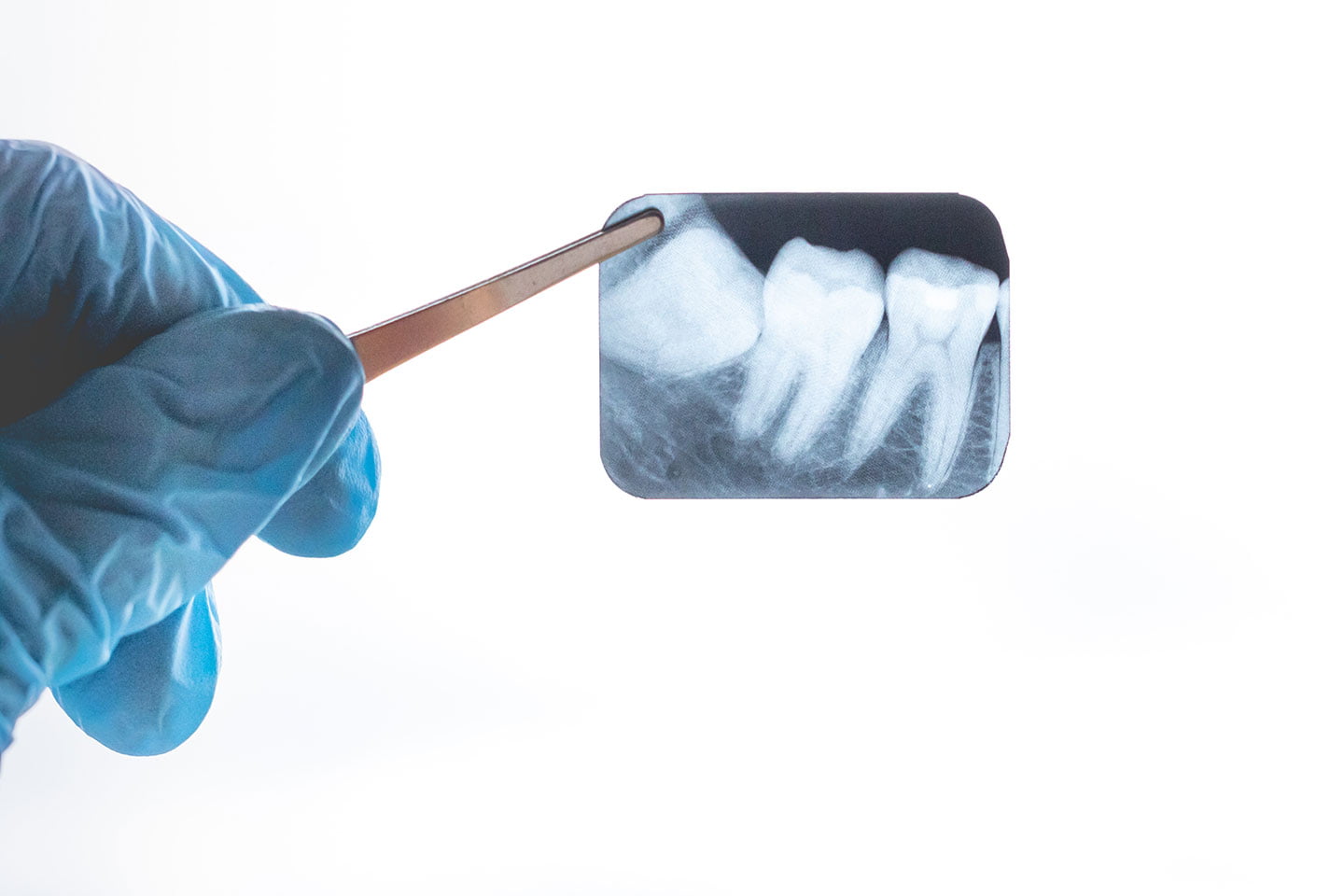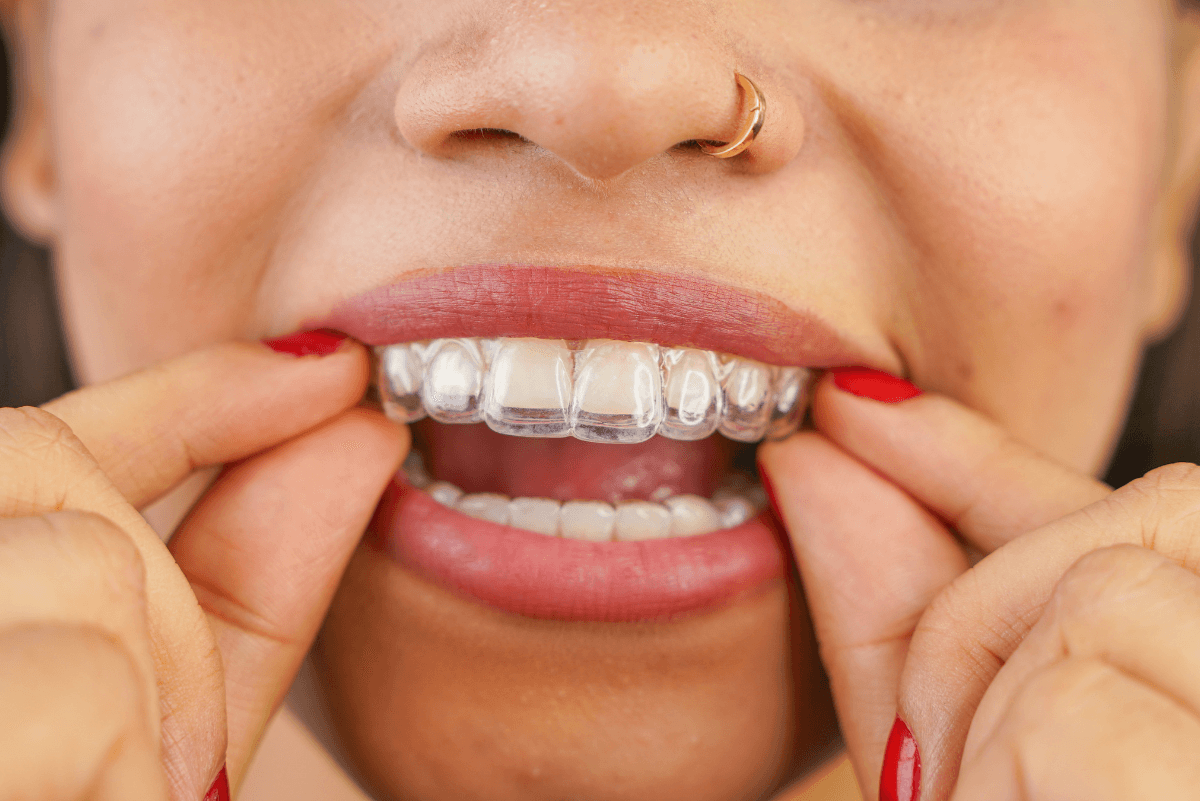Wisdom teeth aren’t the source of all your smarts. They’re simply called wisdom teeth because they typically make an appearance between the ages of 17-21. Not everyone needs their wisdom teeth removed and some of us don’t even develop them, but sometimes removal is recommended.
Past research leads us to believe that wisdom teeth are becoming unnecessary. While our ancestors relied on the third set of molars to support their diet, we have a much softer diet today.
We have also realized that wisdom teeth often become problematic. They can grow at an angle and disrupt other teeth, become impacted and develop pathology around them, or cause pain. Read on to learn more about why you might need your wisdom teeth removed and what to expect throughout the process.

Signs You Need Your Wisdom Teeth Removed
If your wisdom teeth erupt through the gum normally, aren’t causing any problems, and you have enough room in your mouth to clean them properly, your dentist likely won’t recommend wisdom teeth removal. However, many Canadians have impacted wisdom teeth, which can:
- Grow at an angle and disrupt the next tooth (your second set of molars).
- Grow at an angle towards the back of your mouth.
- Stay trapped in your jawbone.
Whether fully or partially impacted, your dentist may recommend removing your wisdom teeth for better oral health. This is typically the case if:
- You’ve developed gum disease around your molars, especially if it is causing bone loss around your second molar (the tooth in front of the wisdom tooth)
- Food and debris keep getting trapped around your wisdom teeth.
- You’ve developed cavities in your wisdom teeth.
- You don’t have enough room in your mouth to allow wisdom teeth to come in properly.
- You’ve developed cysts or other pathology around your wisdom teeth.
- There is any damage to nearby teeth (for example the position of a wisdom tooth against the molar in front can cause a cavity to develop in that molar).
- You’re experiencing pain around your wisdom teeth.
Dentists recommend having your wisdom teeth extracted before age 25 as your bone is more flexible. This makes the process easier and lowers the risk of complications.
What To Expect for Wisdom Teeth Removal
Wisdom teeth removal usually takes anywhere from 45 minutes to 2 hours, depending on the complexity of your case. Before you book your appointment, you’ll be asked about your health history, current medications, preference for anesthesia, and given more details about what you can expect from that particular oral surgeon or dentist.
Before your wisdom teeth removal.
There isn’t much you need to do to prepare for wisdom teeth removal; however, you will want to put a little effort into planning.
You may feel groggy when you get home, and you’ll need soft foods to support the healing process. This means making a trip to the grocery store BEFORE surgery day to stock up on:
- Soups
- Ice cream
- Yogurt
- Pudding
- Mashed potatoes
- Pasta
- Rice
- Smoothies
- Applesauce
- Eggs
- Instant oatmeal
You’ll also need a family member, friend, Uber, or taxi to take you to your appointment. Depending on the anesthesia used, you won’t be able to drive yourself home. While wisdom teeth recovery isn’t overwhelming, it’s recommended to take surgery day and the day after off work in case you’re experiencing any pain and swelling.
During your wisdom teeth removal.
There are three options for sedation that are commonly used for wisdom teeth removal:
Local anesthetic only: articaine, lidocaine, or mepivacaine may be used to freeze the area, and you’ll feel alert once your surgery is complete.
IV sedation: your dentist will numb your mouth and also administer anesthesia through your veins to make you drowsy. Many patients will sleep throughout the entire procedure.
General: this can be administered through an IV into your vein, or you’ll have a mask that releases gas where you’ll be asleep for the entire procedure. Most patients will wake up about an hour after surgery.
After you’ve had your sedation and numbing, your dentist will begin to work on the extraction. They start by removing the tissue that is covering the wisdom tooth. If your wisdom tooth is impacted and covered by bone, your dentist will remove the bone that surrounds the tooth.
Once your dentist can access the wisdom tooth, they’ll begin to loosen it for extraction. Sometimes this means cutting the tooth into sections. Once removed, you may receive stitches to close up the area if they were impacted. If stitches aren’t necessary, this area will naturally heal.
Aftercare for wisdom teeth removal.
Hooray - the hard part is over! Now you just need to focus on self-care and healing to get back to normal. Most patients can resume normal activities the next day, but you may experience a bit of pressure and pain.
Once your appointment is complete, you’ll be given gauze to bite down on while your blood clot forms in the area. While healing, it’s recommended you stick to soft foods (like we mentioned above) so you don’t scratch, irritate, or break the blood clot that has formed.
Of course, you’ll want to drink plenty of fluids and avoid strenuous activity during the healing process. You should switch to a soft bristle brush during this time and avoid brushing the blood clots.
There are a couple of DON’Ts regarding your wisdom teeth after-care.
- Don’t drink through a straw, as the sucking motion can loosen any blood clots that are helping you heal.
- Avoid crunch, hard, sticky or spicy foods.
- Don’t smoke, as it can slow your healing process.
- Don’t brush too vigorously around the area.
- Don’t forcefully rinse and spit as this can dislodge the cloth that forms.
Your dentist will have you in for a follow-up appointment to ensure everything is healing as it should be. While you shouldn’t experience any complications, you’ll want to call your dentist if you’ve noticed trouble breathing or swallowing, excessive bleeding, swelling that won’t go away, consistent pain, or a fever.
At Eau Claire Park Dental, we want to help our patients confidently choose the best option for their comfort. We often refer wisdom tooth extractions to Oral Surgeons in Calgary. If you haven’t had your wisdom teeth removed and are worried about yours, contact our office to book an appointment for an assessment.
Have you had your wisdom teeth removed? What was your experience? If you still have your wisdom teeth, has your dentist confirmed they wouldn’t become problematic? Share your story with our readers in the comments below.



